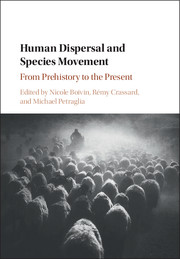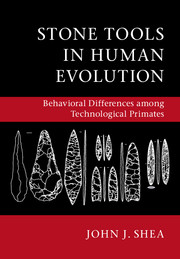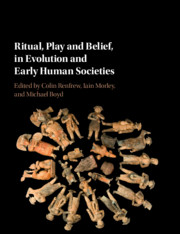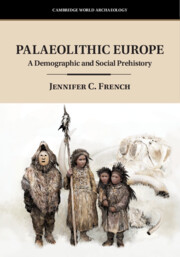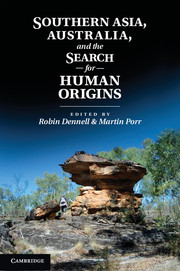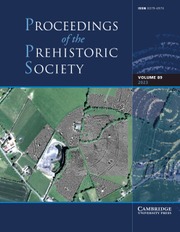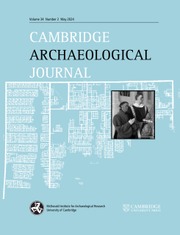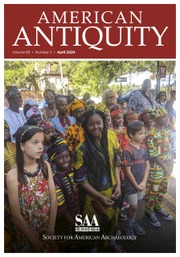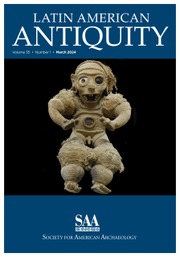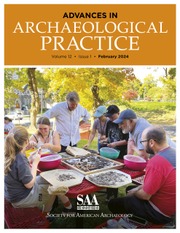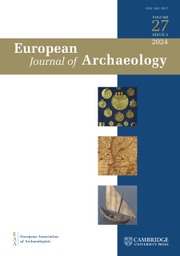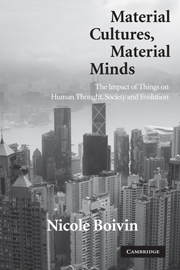Human Dispersal and Species Movement
From Prehistory to the Present
£132.00
- Editors:
- Nicole Boivin, Max Planck Institute for the Science of Human History, Jena
- Rémy Crassard, Centre National de la Recherche Scientifique (CNRS), Lyon
- Michael Petraglia, Max Planck Institute for the Science of Human History, Jena
- Date Published: July 2017
- availability: Available
- format: Hardback
- isbn: 9781107164147
£
132.00
Hardback
Other available formats:
eBook
Looking for an inspection copy?
This title is not currently available on inspection
-
How have humans colonised the entire planet and reshaped its ecosystems in the process? This unique and groundbreaking collection of essays explores human movement through time, the impacts of these movements on landscapes and other species, and the ways in which species have co-evolved and transformed each other as a result. Exploring the spread of people, plants, animals, and diseases through processes of migration, colonisation, trade and travel, it assembles a broad array of case studies from the Pliocene to the present. The contributors from disciplines across the humanities and natural sciences are senior or established scholars in the fields of human evolution, archaeology, history, and geography.
Read more- Brings together disciplines on both sides of the humanities-natural science divide and will appeal to a broad audience
- Offers a historical dimension to significant contemporary topics such as invasive species, the development of novel ecosystems and the global spread of infectious diseases
- Written in an accessible manner, using straightforward vocabulary, avoiding jargon where possible, and including explanations of more complex terms
Customer reviews
Not yet reviewed
Be the first to review
Review was not posted due to profanity
×Product details
- Date Published: July 2017
- format: Hardback
- isbn: 9781107164147
- length: 572 pages
- dimensions: 260 x 185 x 30 mm
- weight: 1.38kg
- contains: 39 b/w illus. 8 colour illus. 23 maps 19 tables
- availability: Available
Table of Contents
Introduction:
1. Human and human-mediated species dispersals through time: introduction and overview Nicole Boivin
Part I. Origins: Species Movements in the Pleistocene:
2. Carnivore guilds and the impact of hominin dispersals Margaret E. Lewis
3. Pleistocene hominin dispersals, naïve faunas and social networks Robin Dennell
4. Hominins on the move: an assessment of anthropogenic shaping of environments in the Palaeolithic Michael D. Petraglia
5. Reconceptualising the palaeozoogeography of the Sahara and the dispersal of early modern humans Nick A. Drake and Roger Blench
Part II. Across the Water: Species Movements by Coast and Sea:
6. Coastlines, marine ecology, and maritime dispersals in human history Jon Erlandson
7. Breaking down barriers: pre/historic dispersals across island Southeast Asia, New Guinea and Australia Tim Denham
8. The last great migration: human colonisation of the remote Pacific Islands Terry Hunt and Carl P. Lipo
Part III. Complexity: Species Movements in the Holocene:
9. Dispersals, connectivity and indigeneity in Arabian prehistory Rémy Crassard and Lamya Khalidi
10. Reconstructing migration trajectories using ancient DNA Greger Larson
11. Out of the Fertile Crescent: the dispersal of domestic livestock through Europe and Africa Melinda A. Zeder
12. Adapting crops, landscapes, and food choices: patterns in the dispersal of domesticated plants across Eurasia Dorian Fuller and Leilani Lucas
13. Tracing the initial diffusion of maize in North America Bruce D. Smith
14. Proto-globalisation and biotic exchange in the Old World Nicole Boivin
Part IV. Invasion: The Movement of Invasive and Disease Species:
15. Invasive eusocieties: commonalities between ants and humans Patrizia d'Ettorre
16. Species dispersions in time, space, and mind: the invasive aliens in context Marcus Hall
17. Disease dispersals in human history at multiple time scales Mark Achtman
18. Early malarial infections and the first epidemiological transition James L. A. Webb, Jr
19. The globalisations of disease Monica Green
20. Modern day population, pathogen and pest dispersals Andrew J. Tatem.
Sorry, this resource is locked
Please register or sign in to request access. If you are having problems accessing these resources please email [email protected]
Register Sign in» Proceed
You are now leaving the Cambridge University Press website. Your eBook purchase and download will be completed by our partner www.ebooks.com. Please see the permission section of the www.ebooks.com catalogue page for details of the print & copy limits on our eBooks.
Continue ×Are you sure you want to delete your account?
This cannot be undone.
Thank you for your feedback which will help us improve our service.
If you requested a response, we will make sure to get back to you shortly.
×
